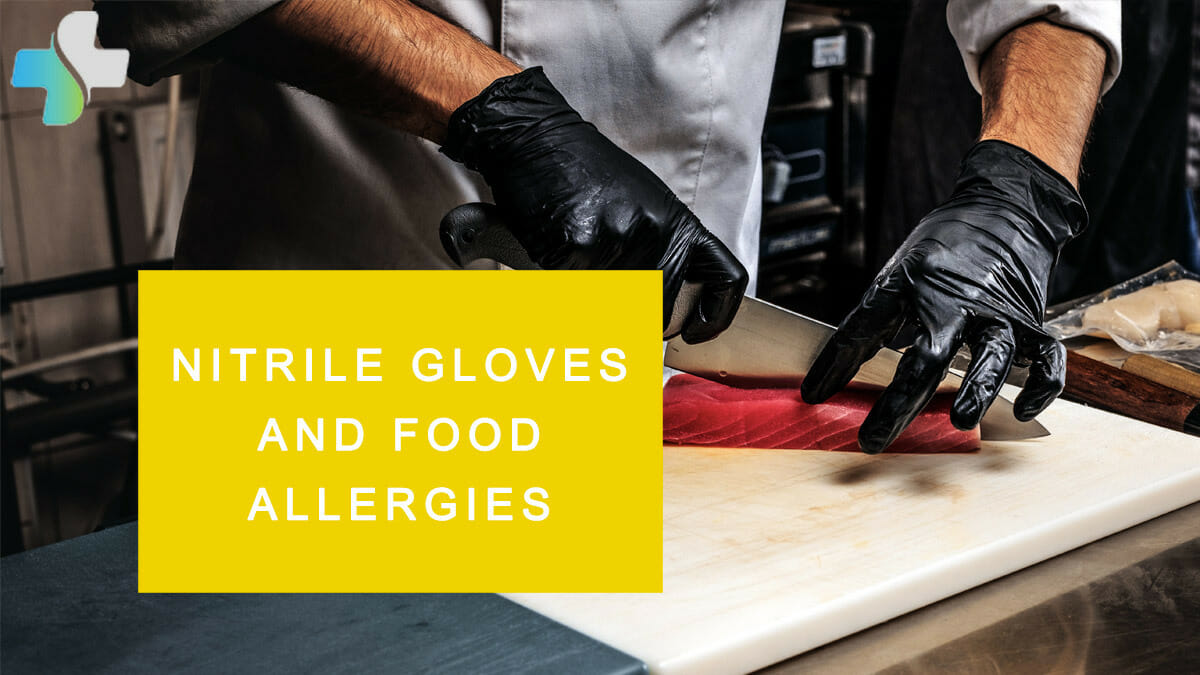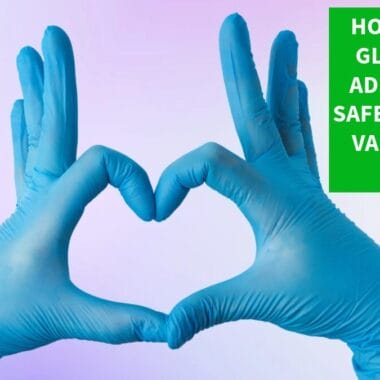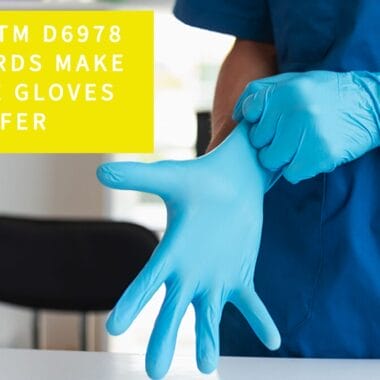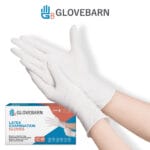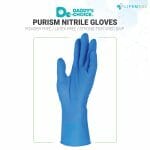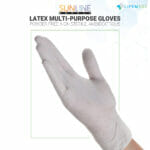Nitrile gloves have become the most commonly used disposable gloves globally. They have become trendy in the food service and handling industry as they are waterproof, greaseproof, and contaminate-free. While nitrile gloves are known for their many perks and benefits, they can still pick up particles from everything they touch. Employees should always switch out their disposable gloves for a new pair when dealing with food allergies.
Food allergies in the food service industry are not to be taken lightly. Nitrile gloves are best when preventing the spread of contaminants and germs in restaurants or food factories, not for preventing the spread of food allergies. Switching out your gloves is the best way to ensure that allergies are not spread when handling food.
Allergens can quickly transfer in the food industry when employees don’t follow proper safety precautions and procedures. Factories commonly include the common allergens handled in the facility due to the possibility of allergen transfer in the products.
Common Food Allergens and How to Identify Them in Products
Handling allergies in the food industry requires employees that pay close attention to detail and have received the proper training and knowledge on food allergens.
According to the Food and Drug Administration (FDA), the eight major food allergens are:
- Milk
- Eggs
- Fish (bass, flounder, cod, etc.)
- Shellfish (crab, shrimp, or lobster)
- Tree Nuts (almonds, walnuts, cashews)
- Peanuts
- Wheat
- Soybeans
The Food Allergen Labelling and Consumer Protection Act of 2004 (FALCPA) requires that all eight major food allergens—if a product contains it—be included on the ingredients label listing the specific allergen. When checking to see if a food product has an allergen, FALCPA makes it simple by including a label that says, for example, “Contains Soy, Milk, and Wheat,” or it will have (soy), (milk), or (wheat) next to the specific ingredient.
The food service industry is a fast-paced environment—which often causes workers to rush through procedures that can result in a mishap when handling an allergy-prone customer. Following proper procedures for those with food allergies is not just replacing your nitrile gloves with a new pair.
Taking precautions to eliminate cross-contamination with food allergies includes:
- Having proper packaging and labelings on foods that contain any of the eight allergens
- Cleaning and sanitizing the surface you’re preparing on
- Using separate utensils, kitchenware, and equipment when handling allergen-free foods
- Replacing your gloves with a new pair
- Washing your hands properly and thoroughly
Cross-contamination in the food service industry happens more often than owners would like to admit. When businesses are inconsistent with their practices and policies, employees don’t always receive the proper training for handling food allergens. If companies do the appropriate training but are incompatible with reinforcing their policies, the workplace will follow and not prioritize them. Allergies in the food industry should be a significant concern for businesses and their customers.
Creating a Safe Environment for Those With Food Allergies
When preparing food for an allergy-prone customer, it’s critical to consider that someone’s health and life are at risk. Not only is the company and its business on the line, but more importantly, you could have a life-threatening situation in your restaurant if there’s a slip-up in the kitchen.
Symptoms of an allergic reaction can vary from mild to severe. The most common symptoms experienced from a food allergy are nausea, swelling of the lips, tongue, and eyes, hives, flushed skin, rashes, etc. Every individual has a different severity level regarding their response to an allergen. Anaphylaxis is the most severe, life-threatening type of allergic reaction, also known as “anaphylactic shock.” Anaphylaxis can lead to constricted airways, low blood pressure, weak pulse, and suffocation from throat swelling.
Every restaurant should install safety policies and training requirements for all employees. If a restaurant has multiple locations, the policies should remain the same at all of them. Employees will inherit the same attitude and work ethic when a company enforces and stands by its policies and rules.
An allergy-prone customer wants to feel confident going to a restaurant without possibly having an allergic reaction. The chef and kitchen staff are responsible for ensuring that a customer’s meal is separate from the others to guarantee that it is allergen-free.
Building Trust and Loyalty With Your Customers
Keeping customers satisfied is at the top of the list of priorities for a business owner. Happy, loyal customers are what keeps a company in business. When customers are pleased with their food, the environment, and the service—they are more likely to refer your business to a friend, leave a positive review, and keep coming back.
As an owner or manager of a restaurant, when you have a customer with a food allergy, it’s essential to assure them that their meal will be prepared separately from the others and made correctly. Reassuring your customers builds a foundation of trust and safety that is incredibly valuable to those with food allergies.
References:
- Food and Drug Administration, 2022. “Food Allergies: What You Need to Know.”
- Food Allergy & Anaphylaxis Connection Team. “Food Allergy & Anaphylaxis.”
- Centers for Disease and Control, 2022. “When and How to Wash Your Hands.”
- Mayo Clinic. “Anaphylaxis.”

